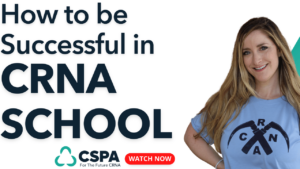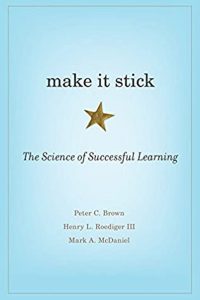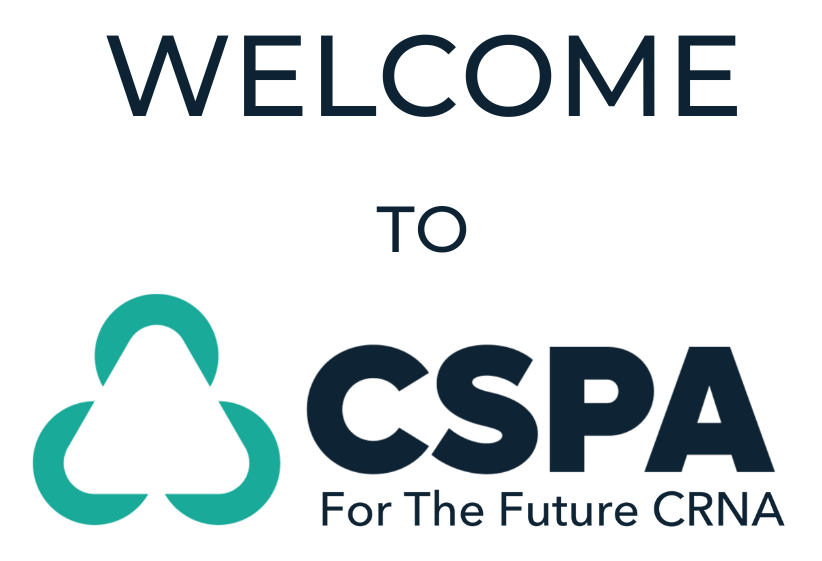
Get Your Free CRNA School Interview Prep Guide
Free CRNA School Interview Prep Guide Click Here
In honor of CSPA Podcast’s one-year “show-iversary”, you guys requested the hot topic of HOW TO STAY SUCCESSFUL IN CRNA SCHOOL! While it is certainly an intimidating time full of challenges and stressors, there are a few key pointers that will help along the way as you are navigating your CRNA school experience.
Today, we’re diving into how to stay successful academically and in clinical, as well as providing an overall picture of what success should look like throughout CRNA school. In this episode, we’re covering-
- Setting yourself up for academic success and combatting imposter syndrome
- The critical importance of understanding HOW to study
- The different resources that are available for you to seek help along the way
- How preparedness and clinical success go hand in hand
- Building trust and independence with your team and your preceptors during your clinical experience
- Overall success and what that should look like to you as a student
- Why it is crucial that you effectively manage your time to avoid severe burnout
So take a deep breath, future CRNA! You can DO THIS, and we’ve got your back. Cheers to you!
Episodes mentioned:
Imposter syndrome https://crnaschoolprepacademy.com/podcast/episode-18-imposter-syndrome-with-nurse-mo/
Clinical Tips for success https://crnaschoolprepacademy.com/podcast/episode-8-clinical-tips-for-success-as-a-nurse-anesthesia-resident/
Ultimate SRNA resource guide https://www.cspaedu.com/guide
How to Study Effectively Lecture (Available through THIS podcast ONLY!) https://www.cspaedu.com/2ldn9bsz
Great book: Make It Stick
Get access to planning tools, valuable CRNA Faculty guidance & mapped out courses that have been proven to accelerate your CRNA success! Become a member of CRNA School Prep Academy here:
https://www.crnaschoolprepacademy.com/join
Book a mock interview, resume edit or personal statement critique:
Join the CSPA email list: https://www.cspaedu.com/podcast-email
Send Jenny an email or make a podcast request!
Hello@CRNASchoolPrepAcademy.com
Watch the episode here
Listen to the podcast here
Tips On How To Stay Successful In CRNA School
This is a very special episode here on the show because we have officially hit our one-year mark and we are closely approaching 100,000 downloads. Thank you very much. I can’t even hardly believe that, to be quite honest. I’m shocked, but I’m super thrilled and I want to do something special on this episode. One of the things I love doing is I love listening to my students. I love hearing from you.
I surveyed you inside of the CSPA community. I asked you, “What do you want me to talk about? We’re coming up on our one-year anniversary, which I want to make special. What better way than to hear from you what you want to hear from me?”
You picked it, which is how to stay successful in CRNA school. That is the topic that you have requested to read about. I’m so excited to bring this episode to you. Let’s go ahead and get right into it. First, let’s talk about academic success. Many of you are probably suffering from imposter syndrome. I’m right there with you. On most days, I suffer from this too. I think it’s a very common thing. Even 4.0 students who go into CRNA school worry about “can I handle the rigors of CRNA school?”.
I was there because I had a history of not being such a successful student at some point. It crossed my mind as to whether or not I would flunk out of CRNA school. Even 4.0 students worry whether they’re going to be able to handle CRNA school. Let’s get into the academic realm and also, I do have an episode on imposter syndrome. I highly encourage you to check it out.
Do Your Own Work
Let’s touch on some things that you can do to continue your academic success. One thing that may seem obvious, but I want to point out is to do your own work. What I mean by this is I see a lot of students follow other students and ask for their study guides or any study tools that they’re using, which I encourage you to do. However, do not let this replace your own studies for someone else’s.
If someone else has done the study guide, don’t take their study guide and study from it. You need to do the work and look up the answers because this is, again, a very active learning process and that is how things are going to stick in your brain. It also helps you build connections with the things you’re learning. You have to be able to do your own work if you want the information that you’re learning to stick and also connect it with other pieces that you’re learning.
Memorization is not going to get you through CRNA school. You have to understand the material and you have to be able to relate it back to other material. If you can’t, everyone always says it’s like drinking from a fire hose, which is true because they’re throwing so much information at you, which is why memorization is not going to cut it.
Never study using another person's study guide. You need to do the work and look up the answers yourself. Studying should be an active learning process. Share on XYou have to do a technique called interleaving and you have to connect the dots. It’s almost like a puzzle. If you like puzzles, think about anesthesia school as a big puzzle because you’re going to be connecting the dots and filling in the pieces as you go. Do your own work. Don’t replace someone else’s study guide for doing your own.
One of the things that we would do when I was in school was we had a two-hour commute to class. We’d have a study guide, for example. We would all do the study guide, but what we would do is we would all do it ourselves, but one of us would then cover certain sections. Meaning that I would do the entire thing myself, but then on the car ride up, I would quiz my classmates over maybe 1 through 10.
Someone else would take a turn. They would quiz you over 10 through 20. We’d all take turns asking each other questions from our study guide and the reason why it was so key that we all did it ourselves. What was interesting was I found that, for example, my section was 1 through 10 to quiz everyone else on. People would give me the answers and I’m like, “Oh.” They would add to my own study guide.
They would actually fill in blanks that I had missed and vice versa. Things on my study guide, I would fill them in and they would miss. We all did it ourselves, but we used each other to help each other see our blind spots. That was a very worthwhile study technique. If you’re getting together in groups, maybe try that technique out and see if that helps, but remember, doing your own work and doing your own study guide is the best way to go.
Just as important as doing your own study guide is you have to understand how you study. This is something that I struggled with very early on in college, in my freshman year in college, in high school and all that. However, I was fortunate enough to figure this out at that point because it meant not pursuing nursing. I didn’t get accepted into the College of Nursing. I had to figure out how to study to get better grades and to get into grad school.
I’m telling you guys, it was like a light switch went off in my brain. When I finally figured out what worked for me, I never looked back. I kept finding success from there on out. Don’t get me wrong- it doesn’t mean that studying has become easy. It doesn’t mean that things just come naturally to me now. That’s definitely not the case. However, when you try different techniques, you find things that are more effective so you can study more efficiently. It becomes more effective. It doesn’t mean that it’s easier. It just means more effective as far as getting you to understand what you’re learning.
You have to understand how you study and what I have heard from so many students throughout the years of mentoring is a lot of times, you can coast by with the bare minimum in undergrad and do okay. You get to grad school and it’s a whole new ball game as far as what they throw at you and how much they expect you to do every single week. You get quickly overwhelmed and realize that your study techniques are not efficient or not as effective as they need to be to handle the amount of information that is thrown at you.
That is by far the hardest part about grad school. It’s not the information itself, for the most part. It’s how much information is at once. Knowing how you study effectively and efficiently is key to being able to handle the rigors of CRNA school. We did share a How To Study Effectively lecture with our email community. If you have missed that, I’m going to give you an opportunity to purchase this lecture.
I presented this lecture during our fall conference. It was praised. People loved it. I had someone who reached out to me and purchased both the How To Study Effectively and Growth Mindset lecture. She’s a new SRNAs and she thanked me so much and she says, “I can’t wait to review this multiple times during my CRNA journey.”
She just gained acceptance. I wanted to share this with you guys here on the show. It’s something special for you guys. It’s only going to be here on the show that you can get this lecture. It’s How To Study Effectively. It’s from the book, Make It Stick. I’ve used that book to help guide me, but I also combined techniques that I have used throughout the years to help me learn how to study effectively. I highly encourage you to check it out.
Seek Help Early
The other important thing for you to do is to seek help early. For other students that I have mentored, when something bad happens, let’s say they do badly on a test and it hinders them from pursuing or continuing on the program, one of the biggest takeaways from when I asked students what happened is they didn’t seek help early. They knew they were in trouble before they actually got in trouble. However, they thought they could handle it, do it and push through. It may not have been that they weren’t capable as far as getting the grade, but maybe they had things in their personal life that were hindering them from taking the time to adequately study.
Seeking help early on, if you do not understand the concept or if you’re having personal issues that are affecting your ability to study, is key to being successful academically in your CRNA program. Any time throughout the program, to be successful, you have to know when to ask for help and you have to make sure you’re asking for help before the problem occurs. Speak up for yourself. If you have to advocate for the patient, you have to advocate for yourself. We teach advocacy. You also have to know how to speak up for yourself as well.
This includes seeking help early and often. Do not be ashamed that you need to sit in the program director’s office for a review. That is what they’re there for. They want you to be successful, so make sure you’re utilizing that time. Not all programs will allow you to review tests afterward, but if they do allow you to review tests, find out what you missed.
Knowing what you missed will allow you to then review the materials so you can try to understand why you missed the question. Typically, if you’re reviewing this material, you have to do it inside a program faculty’s office while someone’s sitting there. A lot of programs will allow you to do this, so make sure you’re staying after class to take advantage of these opportunities.
School is a continuum. You can't just learn once and be done with it. You must be in a continuous fluid motion and go back to review old materials. Share on XReview Old Material Along With The New
Review old material along with the new. The reason why I put this out was because, depending on whether you’re in a front-loaded or integrated program, you’re going to be learning that things that are happening in clinical are essentially not going to be happening at the same time you’re learning them in your didactic portion of your schooling.
What happens is that it could be a year since you’ve learned pediatrics and now you’re in your pediatric rotation. It’s the same thing with board prep. You have to be always hitting old material along with the new because what happens is you do the interleaving technique where you’re building upon a foundation that you set a year ago. If you don’t take time to review what you said a year ago, it’s going to get kind of bogged down and stuck in your brain, but you’re not going to be able to actively retrieve it, so you have to go back. You have to not only think about it.
How I did this in school and what seemed to be effective for me is that I’m learning some information that I know I’ve learned before in some capacity, but I’m having a hard time remembering exactly how I learned it and in what capacity. I try hard to write down and understand what I do know about this topic and what I’ve learned before.
If I can’t fully grasp what I have learned before, I then go and find notes that I’ve taken before, old lectures that have covered the topic, textbooks and readings over the topic. I hit that as I’m learning the new topic. I stop learning the new thing and go back and review the old thing after I have tried to recall it.
What it does is it forces me to use effort in trying to recall the information, but I stop and review the old information. Once I get it, once I’m like, “Cool. It clicked.” I then stop that and I go back to the new information and I continue learning from there. I stopped because what I want to do as I’m learning new material is make sure I have a good foundation to build upon it because that will help you recall during a test.
You have to have the base knowledge to understand a more complex concept. Sometimes when you’re studying and you’re learning new concepts, you have to stop what you’re doing and review old materials so you can keep going forward with the new material. Hopefully, I didn’t lose you there. Reviewing old material with new material is key, especially if it’s been a while since you have reviewed any of the information. You have to think about school as it’s kind of a continuum and it’s not like once you learn it, you’re done with it. You’re always going to be using it in a fluid motion. It’s going to take you going back and reviewing old material.
Clever Preparedness
Let’s go into clinical success. We’ll cover that one. In clinical, you want to be prepared and this may sound like, “Jenny, what does that mean? What does being prepared look like in clinical?” Yes, you probably know about Jaffe, that big giant textbook. I still have my Jaffe. I’m going to explain to you what clinical preparedness means. This is not just preparing for your case. Yes, that’s a big component. However, you have to not only prepare for your case but you also have to understand why you’re doing the case.

Success Tips: Speak up for yourself. If you have to advocate for your patient, you have to advocate for yourself as well.
Understand why the patient’s having that procedure. What kind of disease process exists underneath the procedure that is the reason they’re having this done? The reason you have to understand that is not just the surgical procedure, as you should know what kind of EBL, whether it’s going to be a MAC, general, LMA, endotracheal tube or maybe a one-lung ventilation case. You have to understand all those things, but you must also understand why they are having this case done in the beginning? What is the disease process that is requiring them to have this case?
You may not know your patient’s full medical history while you’re looking up your case the night before. Sometimes you will and sometimes you won’t. It depends on your clinical site and how much access you have to look up your cases for the next day. Even if you don’t know your patient’s full medical history, you can still gauge what’s going on with them, which will then help you make a better game plan. You have to understand that they’re having this done, maybe they’re a high risk for desaturating during the induction or they’re a high risk for having an aspiration, for example.
You have to understand the disease process that clues you into maybe their high risk for postoperative nausea or maybe they’re going to have a hard time having pain control because you know this is a very painful procedure. Understanding the case more than just understanding the physical aspects of the surgery, we have to understand the patient and the patient’s need that goes along with the surgery.
I hope that made sense, but being prepared and trying your best and you guys, especially when you’re new in clinical, give yourself grace because this is very hard. It’s not super easy and it doesn’t come naturally. It’s going to take time and experience to understand how all of this works together. Sometimes you’re not going to know. You’re going to go into this blind and you have to learn on the go. That’s okay. I’m not saying you have to know everything before you enter the clinical realm, but you have to do your best.
Where this can start is first thing in the morning. If you get there early enough to do a thorough preoperative assessment, then you start thinking about these things too, you can then report to your preceptor and they’re going to be like, “You’re a rockstar. You got this.” Even if you don’t get all of it, if you’ve just taken the time to think and start asking questions like, “I think this might be something that they’re high risk for because of X, Y, and Z,” even if you’re not right, the fact that you’ve taken time to think that through and give this information to your preceptor, they’re going to reward you for it.
They’re going to feel like, “It’s cool. You gave it some thought. This is what I’m thinking.” You can go back and forth. I enjoy when my students bring things to my attention because sometimes they’re things I don’t even think about. I’m like, “That’s a good point.” When you’re doing this, it’s going to build that trust and trust is very important in the clinical realm, especially when you want to excel in clinical because the more trust your preceptor has with you, the more they’re going to let you do independently.
That’s always going to be your goal in your clinical is to really try to function independently because it’s going to really set you up for success afterward or at least allow you to feel like you have it. I remember getting ready to graduate and being like, “Can I really do this by myself? I’m not going to have someone here. What if I don’t know when to extubate a patient? What if they spasm because I pull a tube too soon,” but I was fine and you’re going to be fine too. You will be ready, but sometimes I think when you don’t get as much independent experience as a student, you may question these things more when you’re getting ready to graduate.
Go into school with a game plan on taking care of yourself both physically and mentally. If these things crumble, you crumble along with them. Share on XBuilding the trust is important, though sometimes that’s hard, at least in my experience, because I was at a big facility where I was lucky if I worked with a CRNA more than once because there were hundreds of CRNAs. It was a giant medical facility. If I was with a preceptor three times, that was good. It can be hard to build trust when you’re only with someone a few times, but in some clinical sites, you’re with the same CRNA for weeks in a row, every single week for the entire duration that you’re at that clinical site.
Then it’s easy to build trust and be able to establish a relationship that will allow you to work more independently. Keep that in mind. Even if your preceptor doesn’t give you a lot of trust in the beginning, sometimes it takes time to build that trust and so give your preceptor some grace with that too. The more you can think about your case in the morning and understand your patient and the patient’s medical history, not just the surgical procedure, the more trust you’re going to build with your CRNA.
Also, I want to point out initiative and what this means; I’ve had some students vocalize how they think CRNAs don’t like it when you ask questions. When I’ve dug into this a little bit, I’m like, “First of all, whoever criticizes you for asking a question, that’s not right.” You should always ask questions. However, I think what I’ve tried to understand is where some people are coming from or some preceptors are coming from if the student asks a question that the preceptor feels they should know or should take the initiative to find out. That’s where I think this fine line lies where maybe the preceptor came back at you and said, “You need to go look that up,” but then that isn’t the right way to handle it by the way.
I’m just letting you know that you will probably experience that at some point during your clinical career. The reason why they probably say that is because they want to see initiative from you to look things up versus just asking a question. The reason for this is not because they want to be mean, at least hopefully not. One, they might not know themselves and two, they know that an active learning process is taking the initiative to look it up. You actually learn more by doing that than just being told the answer.
It’d be like you studying for a test by borrowing your friend’s study guide and trying to memorize what they wrote down versus you actively looking up the information because when you’re actively looking at the information, you’re building those inner connections. You’re building on the fundamental knowledge that will allow you to understand. When they tell you to look something up, it may not be because they don’t want to help you. It might be because they want to see you take the initiative for your own learning and be responsible for your own progress that way. Keep that in mind as far as taking the initiative.
Next are classmates. I’ve mentioned this before, but the reason why I want to touch on this again is, yes, lean on your classmates. Form study groups. Utilize each other as study resources. However, do your own work, though you can definitely mix things up by reviewing what they have done. They may understand things differently than you, but one thing I want to point out to be very careful about is to make sure the work that you are borrowing is not something you would be turning in. Schools will see this as cheating.
Keep that in mind. If you’re borrowing any kind of work from upperclassmen, make sure it’s not work that they physically had turned in and I’m even telling you, if someone comes to you and asks for something from you that is something that you had to turn in for a grade, do not give it to someone else. Even if it’s not your intention, I’ve seen students potentially get in trouble for this. I want to make sure I’m warning you and this whole episode is about your success in CRNA school. I want to make sure I’m pointing out that you can’t just give any types of assignments to other classmates for them to borrow because there’s a fine line between giving helpful advice and possibly cheating.

Success Tips: The more you can think about your case and understand your patient’s medical history and surgical procedure, the more trust you can build with your preceptor.
Hit The Books
Make sure that it doesn’t happen to you and make sure that if you’re borrowing things from upperclassmen, underclassmen, or whomever, that is stuff that they physically have made to help them study and not something that they are turning in for a grade or an assignment. Hit the books. You’re probably like, “Really, Jenny? I don’t want to hit the books. I already hit the books enough.”
The reason why I put this in here is because what I touched on earlier for academic success- you have to review the material. You have to take the time to understand. Even when you’re looking up a case, you might be understanding the surgical aspects of the case, but do you understand the disease process of the case?
That’s going to require you to probably hit your book a little bit heavier than just Jaffe. That’s what I meant by hit the books. You have to understand not only the surgical aspect of the case but also the pathophysiology behind it. Also, the pharmacology. If you know in your case you’re going to more than likely use Cleviprex, you should be looking at Cleviprex as well and understand exactly how that works.
Take Challenging Cases
That goes for any drugs. In a typical general case, you use certain drugs, but are there any drugs that you may use like for an awake crani, maybe you’re going to use Precedex. You understand Precedex and how it works. Make sure you’re taking the initiative to not only look up the case, but you’re looking at the pathophysiology and pharmacology that will also play into how the case unfolds. Take challenging cases. This can be hard, especially when you’re facing burnout when you’re getting ready to graduate and you have senior-it is. Sometimes you’re like, “I’m just going to coast through here and get out the door.”
I feel you. I’ve been there. I remember feeling that way, being like, “I’m totally over this.” I totally understand that feeling, but that being said, you’re not doing yourself any favors by doing that. I want to make sure I’m pointing out that if you want to push yourself to get as much out of it as you possibly can, then remind yourself sometimes that you are paying to be there. You’re paying for this education. You are paying for this experience. You should get the most value out of it.
When you’re getting ready to graduate, you may be having those fears of being on your own. What better way to experience a scary, challenging case than when you’re with a CRNA? Taking the challenging cases, especially towards the end of your program, it’s going to only do you a favor. You’re going to progress easier, faster and smoother by taking challenging cases. Do not shy away from them. Even if you get there that day and you had planned out a case. You had it all pretty much mapped out. You had exactly what you were going to do and now, you have to find a home because your case got canceled. Find a challenging case.
If it exists and there’s not a student in there, take it. Yes, it might be rocky and you’re going to be scared. You’re going to be overwhelmed, but you should embrace it because you’re going to get some learning out of it. Be honest with your preceptor, “My case got canceled. Is it okay if I’m in here with you? I haven’t prepared for this, but I’ll tell you what I know about it. I want to use this as a learning experience.”
Make sure to take care of yourself. Otherwise, you will not have much left to give. Share on XProbably 9.9 times out of 10, they’re going to be proud of you for doing that and understand where you’re coming from because they were in your shoes at one point too. They’ll be happy to take you under their wing and teach you the way. Make sure you’re giving yourself the opportunity to take challenging cases. Now we’re going to go into overall success. I want to touch on this because there’s a big picture here. I know I just covered academic and clinical. However, I want to paint an overall picture of what success should look like to you as a student.
Time Management
The thing I want to point out is time management. You may be cringing because you’re like, “I’m so overwhelmed with my time. How the heck am I supposed to manage time when I have no time?” First of all, I’m right there with you. Most days, I feel the same way where I’m like, “I wish days were 48 hours long sometimes because I don’t have enough time.” I don’t even have time to comb my hair. I wake up, brush my teeth and that’s about all I do, most days anyway. I totally understand that time management is hard. It’s challenging. However, it’s a necessity if you want to be successful in CRNA school.
Whatever that looks like, whether that’s an online tool, there are lots of them. There’s Asana. It’s a business tool, but you can use it for your personal life. There are also planners. However, you want to do it. There are also apps on your phone. There’s an ultimate resource guide in that list such as apps. It has different apps you can use to help with organization but again, time management is key.
Also, I want to go into physical and mental wellness because sometimes, when your time management is not ideal, this suffers. Why? It’s because you find the time that you should be taking care of yourself to be doing your schoolwork or whatever it may be. Maybe you binged on Netflix and now you have no time to study. It can go both ways where maybe you’re not making school your priority.
Maybe there are times you’re making that a priority over your own mental and physical wellbeing. I want to encourage you to try to acknowledge this as early on as possible. Go into school with a game plan on how you plan on taking care of yourself, both physically and mentally. You need this because I promise you if this crumbles, everything else will crumble along with it. You have to take care of yourself first. It’s like on the plane when they say put your oxygen mask on first. When you think about it, if you pass out before you put your mask on your child, then you’re no good. Take care of yourself. Make sure you’re taken care of and you have to make sure that this is a priority in school.
Setting Boundaries
Because if you don’t, then the rest of the cookie could crumble. This could play out into setting boundaries. I also struggle with setting boundaries. I’m right there with you. However, I had to set a boundary that was hard for me to set. It is that I stopped answering personal DMs because I found myself cutting into my personal, my family time at all hours of the day, night, all the time.
I found myself not being able to work efficiently during the day at CRNA School Prep Academy. It didn’t feel good and I knew something had to change. I had to make the hard-line, the hard boundary is to let my students know if they want my time, if they want to speak with me that you do that inside the social wall. You ask me a question and I go live every single week to answer your questions.

Success Tips: You can’t just give any assignment to other classmates for them to borrow. There’s a fine line between giving helpful advice and possible cheating.
In the meantime, I told my team to handle my DMs. My team lets people know how to reach me and helps answer them and guide them. Yes, it was hard for me because I love you guys, but at the same token, I knew it was a boundary I had to set for my own mental and physical well being because I also deserve family time and me time. I felt it was cutting into that. I had to make that hard decision to make that boundary.
This could look like anything for you. It’s some kind of boundary. It could be a personal boundary, physical or mental boundary, however it is. It could be a boundary you set with your friends, your spouse, your parents. You have to set boundaries that work for you. Remember, you have to make sure you are taken care of because you need to be able to give it all to your program.
Burnout
If you’re not taking care of yourself, you’re not going to have much left to give. Setting boundaries is key. This also plays into burnout. I have another episode on burnout, which is episode number seven. Go and check that episode out. Burnout at some point will happen to most students. I can’t say it happens to everyone because I hope it doesn’t happen to someone, but I know the vast majority of you will experience burnout in some shape or fashion.
It can vary in degrees. You will probably all experience some type of burnout, but maybe it won’t be that severe. That goes back to physical and mental wellness and setting boundaries to hopefully prevent burnout. The other aspect of burnout is awareness. So much of mental wellness is awareness of how you are feeling and addressing that feeling. If you neglect it, and I’m guilty of it too, you know you’re in trouble, you’re suffering, you’re not happy, but you’re like, “I’ll be okay. I’m going to push through it. I’m going to keep going. I’m going to go, go, go.”
The next thing you know, you lose yourself. I don’t want that to happen to you because it’s hard to rebound from that. Unfortunately, your clinicals can suffer. Your academics can suffer. You have to address burnout head-on. You have to say, “Something’s not right. I’m not handling this well. I need to figure out why.” First, come up with the emotion you’re experiencing and then say, “What’s causing you to feel like this?” That’s where you need to start. That’s number one.
Number two is you have to look for ways and strategies to help you potentially not eliminate it because it might never go away, but help you handle it and cope with it better. That’s number two. A lot of times, it could be a physical activity. It could be going to the gym. I used to take my notes to the gym. I would sit on the arc trainer because it wasn’t too bouncy and I would study, but it made me feel good because I got my anxiety and my stress out by being physically active. It also helped me study, so I didn’t feel guilty doing it because I felt like, “I’m still doing schoolwork, but I’m also taking time for my physical well being.”
I want to pop in some Lady Gaga and jam out, but that was how I coped. I would sometimes jam out at the gym with some fun music, but I would also listen to my study notes or review my study notes. If you want more on that, I could talk about burnout for an entire episode. Head over to episode number seven to hear more about how I teach you to cope with burnout.
I feel like we have covered a lot in this episode so far, and I don’t want to get this to be too overwhelming for you guys. I also cover a lot in episode number eight, Clinical Tips For Success. Head over to episode number eight to learn more on how to be successful in the clinical realm. I hope that this episode painted a picture of how to be successful in CRNA school. Thank you so much. This was so much fun. Thank you for being loyal readers. It means so much. If you’re not CRNA School Prep Academy student, I hope to see you inside the academy soon. You can head over to CRNASchoolPrepAcademy.com to learn more. We will see you guys on the next episode.
—
As always, I appreciate you and your loyalty. Thank you so much for tuning in. I’d love to hear from you, so screenshot this episode and share your IG Stories with your biggest takeaway. Don’t forget to include the #CRNASchoolPrepAcademy. If you’re on Facebook, be sure to join I.C.U. Dreaming About Anesthesia by CRNA School Prep Academy. This is a private community where you will find guidance and support along your journey into CRNA school. Stay strong and I’ll see you next time.
Important Links
- Imposter syndrome – Past episode
- How To Study Effectively
- Make It Stick
- Episode number seven – Dealing With Burnout as a Nurse Anesthesia Resident
- Clinical Tips For Success – Past episode
Get access to planning tools, valuable CRNA Faculty guidance & mapped out courses that have been proven to accelerate your CRNA success! Become a member of CRNA School Prep Academy here:
https://www.crnaschoolprepacademy.com/join
Book a mock interview, resume edit or personal statement critique:
Join the CSPA email list: https://www.cspaedu.com/podcast-email
Send Jenny an email or make a podcast request!










